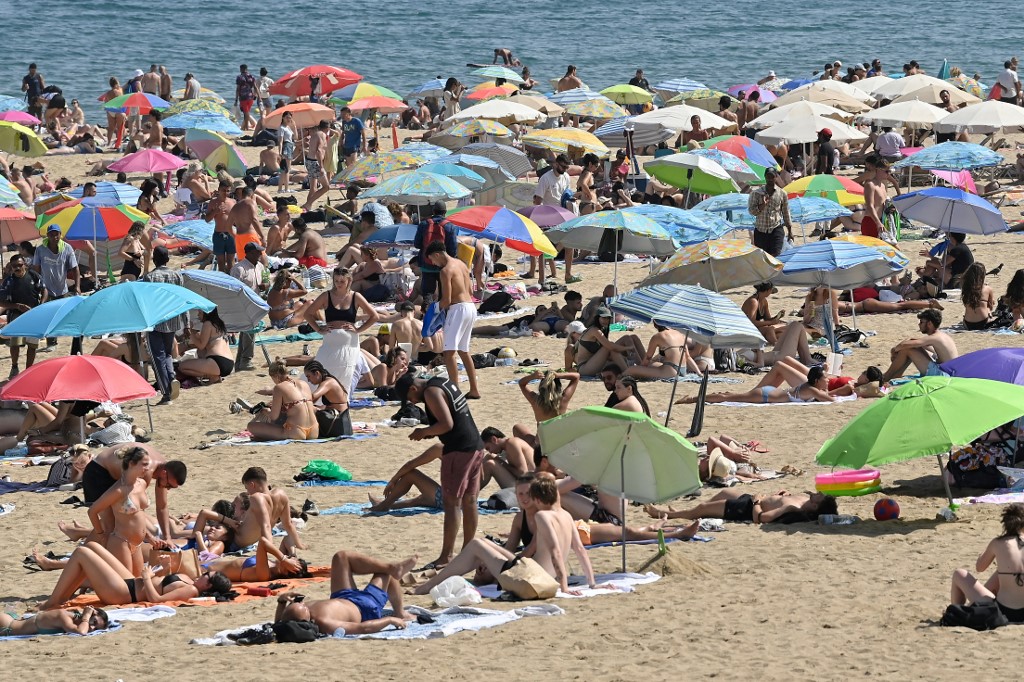Could Spain finally have a new government?
Since the nail-biting general election on July 23rd led to a hung parliament, there’s still plenty of uncertainty about who will be able to govern the country next, which parties can form coalitions and if a re-election will have to take place later on in 2023.
Although Alberto Núñez Feijóo’s right-wing Popular Party (PP) won the vote, it fell short of a governing majority. Pedro Sánchez’s Socialists seem more likely to be able to gain an absolute majority through coalitions with regional parties, although this would involve getting the support of Catalan separatist parties such as Junts (who want an independence referendum and amnesty for their leaders in return), and the recount on August 1st of up to 2.3 million votes of Spaniards living overseas could tip the balance either way.
Spanish law states that the elected government must convene within 25 days of the elections, which means that the deadline for a new government to be formed will be on August 17th at 10am. Pedro Sánchez has been formally named caretaker prime minister of an interim government until agreements can be made.
READ ALSO: If the PP was most voted party, why haven’t they won Spain’s elections?
Main summer ‘Operación Salida‘ to take place
Spain’s grand summer exodus from the cities towards the beaches and the countryside is known as ‘Operación Salida’ and takes place mostly during July and August. Spain’s General Directorate of Traffic (DGT) is expecting 95 million long-distance journeys to be made by road this summer alone.
The busiest time will be the weekend between July 28th and August 1st, however, there will be a second exodus in the middle of August between the 11th and the 15th. The DGT has warned people to try and avoid these busy times if possible.
More heatwaves to come?
We’ve already experienced three heatwaves in Spain this summer, but could there be more in August? Meteorologists have predicted a welcome break to the scorching temperatures seen in July with the mercury expected to be below normal for this time of year at the beginning of August. This unfortunately is not expected to last long.
According to weather site ElTiempo.es, the rest of August will see temperatures higher than normal across the whole country, quite possibly meaning a fourth heatwave. Catalonia, Aragón and Valencia are also expected to be more humid than usual, making the heat that little bit harder to bear.
READ ALSO: Is it worth living in Spain if the summers are so unbearably hot?
Hotels on the coast and in the countryside are almost fully booked
It’s no surprise that this summer is predicted to be a busy one in Spain. Already in April, the number of foreign tourists visiting Spain reached record levels for that month and the tourism board predicted high figures for the summer too, which may even beat the record-breaking pre-pandemic year of 2019.
Valencian hotels are expected to have 90 percent occupancy this August, while rural tourism in the interior, northern and mountainous regions is expected to reach 75 percent occupancy. Madrid may not be the first place you’re planning on visiting during the August heat, but even the capital already has 50 percent occupancy predicted for this coming month.
Supermoons are coming
This August will bring with it not one rare astronomical event but two, as two supermoons will be appearing in our skies. The first will take place on August 1st, the full Sturgeon Moon and the second will take place on the last day of the month, August 31st This will be the Super Blue Moon and occurs when two full moons take place in the same month.
Public Holidays
August may seem like one month-long public holiday in Spain, but there is actually only one public holiday for the whole country, which takes place on August 15th August. This means that anyone not already on holiday will be able to take one on this day. It celebrates the Day of the Assumption of the Virgen, which according to Christians, commemorates the day the Virgin Mary entered heaven.

August is festival month in Spain
Just because people are on holiday doesn’t mean that the festivities stop during August, no they simply continue and there are lots to look forward to. Málaga, Bilbao and San Sebastián all celebrate their most important events this month.
Málaga’s annual feria takes place this year from August 12th to 19th, while Bilbao’s Aste Nagusia or Semana Grande, held in honour of the Virgen de Begoña, will be held from August 19th to 27th. San San Sebastián also has its own Semana Grande with lots of fireworks, traditional games, sports and music. It takes place just before Bilbao’s from August 12th to 19th.
The famed Tomatina tomato fight in Buñol also takes place on the last Wednesday in August – this year August 30th.
Portugal to introduce border controls with Spain for the Pope’s visit
Portugal is to impose checks on everyone who enters from Spain until August 7th because of the visit of Pope Francisco. Travellers wanting to cross one of the 21 border crossings with Portugal will have to show an identity document to enter until August 7th. The Spanish consulate in Lisbon has recommended that children also carry a valid ID or passport.
Madrid and Barcelona are under construction
Spain’s two biggest cities – Madrid and Barcelona are undergoing massive transformations this summer. In Madrid ‘Operation Tarmac 2023’ will mean that the pavements of 266 streets in 21 districts across the capital of will be replaced. It will also mean roadblocks on the A-6 over the four weeks of the month. The extension of metro line 11 will also cause many disruptions to both road and rail.
While in Barcelona, the whole centre of the city seems to be one big construction site with works on La Rambla, the Port Olímpic, Camp Nou and Via Laietana, bisecting the Old Town.
READ ALSO: Why is Barcelona one big construction site right now?
More police in Barcelona
Barcelona is to have 220 new Mossos d’Esquadra or local police agents by the end of August, on the order of the city’s new mayor – Jaume Collboni. This will hopefully help to decrease the number of crime incidents in the city.
112 emergency call centre workers on strike in Barcelona
Call centre workers who operate the 112 emergency lines in Barcelona and Reus have announced an indefinite strike during weekends, which will begin on August 4th. Employees are demanding that the service be internalised and that they have their own agreement, rather than depending on Ferrovial. They also want an improvement in working conditions, stating that at night they are only paid €1.80 per hour and 90 percent of the contracts are part-time.
Córdoba to require e-scooter users to contract insurance
In February, the Mobility Ordinance came into force which meant that drivers of personal mobility vehicles (VMPs), such as e-scooters, have to have civil liability insurance.
In Córdoba, drivers had a period of six months to contract the insurance, which will end on August 18th, when the Córdoba City Council will take action against anyone who doesn’t have it.



 Please whitelist us to continue reading.
Please whitelist us to continue reading.
Member comments